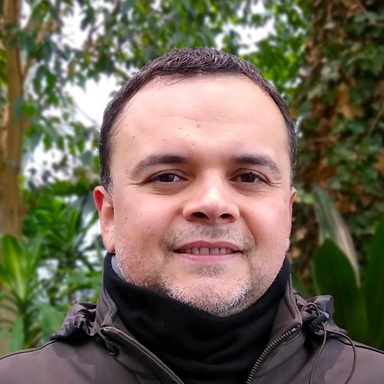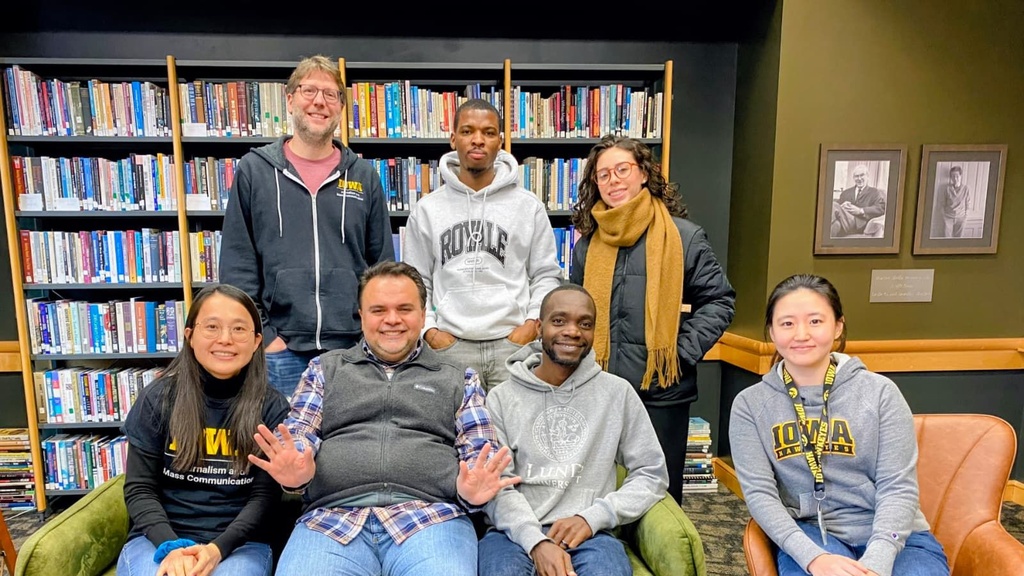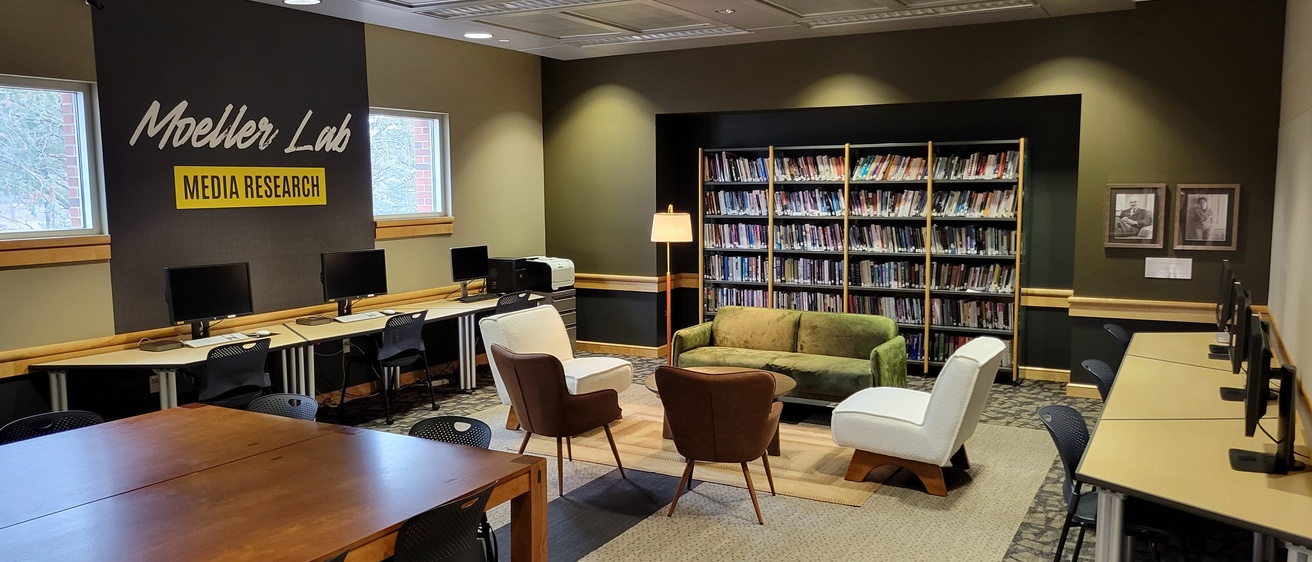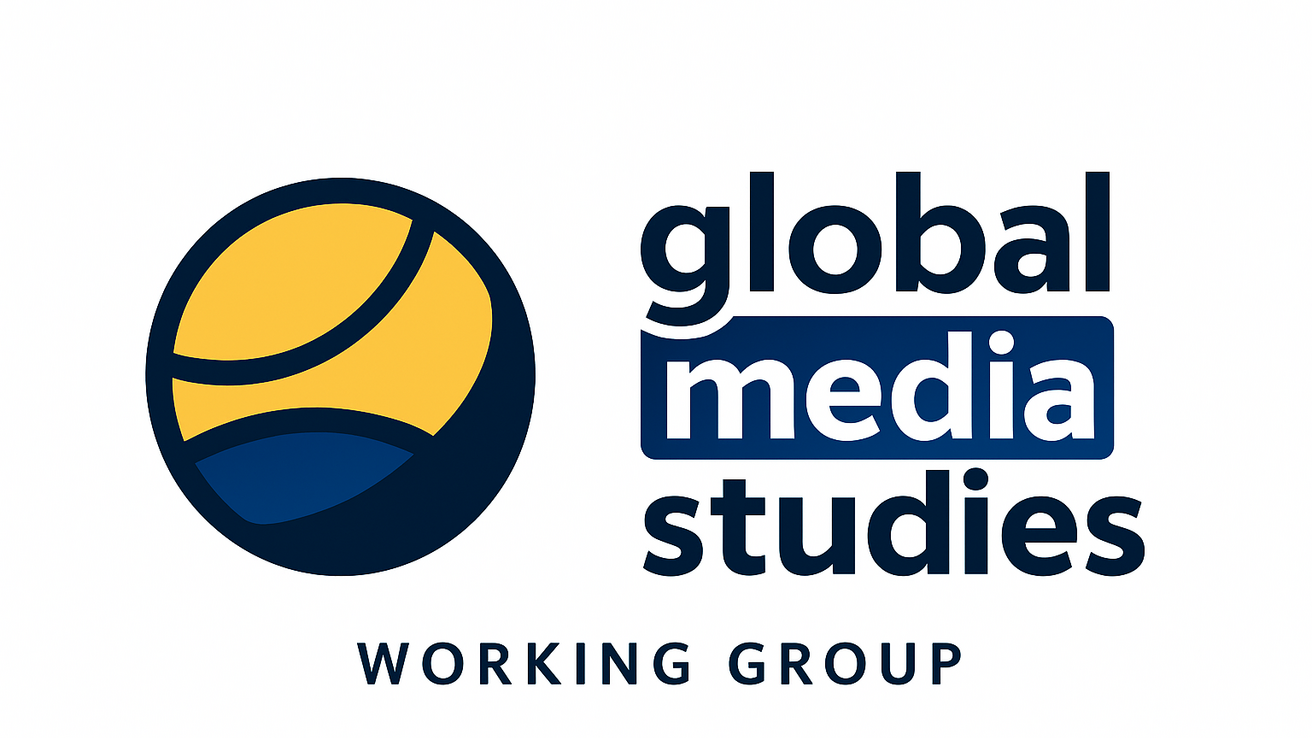Main navigation
About Our Research
The Global Media Studies Working Group, led by Associate Professor Jamil Marques, brings together faculty, graduate students, and postdoctoral researchers from across the social sciences and humanities to engage with enduring and emerging questions in Communication, Media, and Journalism research.
Through critical reading and discussion of scholarly texts, collaborative research initiatives, and constructive feedback on members’ projects, the group fosters an intellectually vibrant and supportive environment. The Global Media Studies Working Group is supported by the Obermann Center for Advanced Studies.
Our key areas of inquiry include:
- The dynamics of information flows between the Global North and South
- Comparative analyses of media systems
- Policy development and emerging trends in global media governance
- Structural inequities in knowledge production across global intellectual circuits.

“We aim to create a dynamic environment that fosters interdisciplinary collaboration to examine media systems within diverse global contexts.”

Global Media Studies Revival
Jamil Marques, an associate professor in the School of Journalism and Mass Communication at the University of Iowa, has officially revived the Global Media Studies Working Group.
Selected Publications and Conference Presentations
Ashfaquzzaman, M., & Sosale, S. (2025). ‘Familiar but foreign at the same time’: hegemonic pull and push in first Indian Netflix original series Sacred Games. Contemporary South Asia, 1–14.
Tang, R., Tully, M., Bode, L., & Vraga, E. K. (2025). Effects of a news literacy video on news literacy perceptions and misinformation evaluation. Media and Communication, 13.
Asuman, M., & Ekdale, B. (2025). Where is and isn’t digital journalism studies: A meta-analysis of an emerging field. In S. A. Eldridge II, D. Cheruiyot, S. Banjac, & J. Swart (Eds.), The Routledge Companion to Digital Journalism Studies, 2nd edition, (pp. 11–21). New York: Routledge.
Mudavadi, K. C., Matanji, F., Diop, L., Tully, M., & Madrid-Morales, D. (2025). Stakeholder perceptions of regulatory responses to misinformation in Kenya and Senegal. Journalism, 26(7), 1488-1507.
Asuman, M., Ibrahim, A., Cohen, M. S., & Ekdale, B. (2025). Geographic tokenism on editorial boards: a content analysis of highly ranked communication journals. Online Media and Global Communication, 4(1), 35-59.
Diop, L., Madrid-Morales, D., Matanji, F., Mudavadi, K. C., & Tully, M. (2025). What is media literacy and why does it matter? Perspectives of Senegalese media professionals. Journal of African media studies, 17(1), 55-72.
Ibrahim, A. A., & Ekdale, B. (2025). Political Campaign Responses to Information Disorder: A Case Study of the 2023 Nigerian Presidential Elections. The international journal of press/politics, 19401612251324985.
Kim, S. J., Lu, Y., & Peng, Y. (2025). Unmasking Deception: How computer vision could empower journalists in unveiling visual misinformation. In The Routledge Companion to Visual Journalism (pp. 471-482). Routledge.
Kim, S. J., Sun, Y., Bucy, E. P., & Shah, D. V. (2025). Digital Dilemmas: Crises in the Fourth Age of Political Communication. In Public Communication in Freefall: Revisiting the work of Jay Blumler (pp. 59-88). Cham: Springer Nature Switzerland.
Xiao, Q., Fan, X., Simon, F. M., Zhang, B., & Eslami, M. (2025). " It Might be Technically Impressive, But It's Practically Useless to us": Motivations, Practices, Challenges, and Opportunities for Cross-Functional Collaboration around AI within the News Industry. In Proceedings of the 2025 CHI Conference on Human Factors in Computing Systems (pp. 1-19).
Zhang, B., & Schmierbach, M. (2025). Comparing the efficacy of narrative and didactic inoculation in combating climate change misinformation: impact on misbeliefs and intention to share misinformation. Journal of Science Communication, 24(4), A02.
Gil de Zúñiga, H., Scheffauer, R., & Zhang, B. (2024). Cable news use and conspiracy theories: Exploring Fox News, CNN, and MSNBC effects on people’s conspiracy mentality. Journalism & Mass Communication Quarterly, 101(4), 889-910.
Kim, S. J., Villanueva, I. I., & Chen, K. (2024). Going beyond affective polarization: How emotions and identities are used in anti-vaccination TikTok videos. Political Communication, 41(4), 588-607.
Marques, F. P. J. (2024). Populism and critical incidents in journalism: Has Bolsonaro disrupted the mainstream press in Brazil?. The International Journal of Press/Politics, 29(4), 825-846.
Marques, F. P. J., & Vos, T. P. (2024). Advancing comparative studies in political communication research: What factors explain the transformation of media systems?. International Communication Gazette, 86(7), 521-540.
Marques, F. P. J., Ferracioli, P., Comel, N., & Kniess, A. B. (2024). Who is who in fact-checked conspiracy theories? Disseminators, sources, and the struggle for authority in polarized environments. Journalism, 25(4), 856-880.
Ekdale, B., & Aidoo, E. (2024). Navigating platform work through solidarity and hustling: The case of ride-hailing drivers in Nairobi. Online Media and Global Communication, 3(3), 395–417. doi: 10.1515/omgc-2024-0017
Sosale, S. & Rosas-Moreno, T. (2024). Emerging economies in business news: Re-positioning leaders in the Global South. Global Media and Communication, (20)1, 23-42.
Paul, S. & Sosale, S. (2023). Cultures of restraint and towards an appraisal of non-western news values. Journalism Studies, 1-17.
Ekdale, B., Rinaldi, A., Ashfaquzzaman, M., Khanjani, M., Matanji, F., Stoldt, R., & Tully, M. (2022). Geographic disparities in knowledge production: A big data analysis of peer-reviewed Communication publications from 1990 to 2019. International Journal of Communication, 12, 2498–2525.
Ekdale, B., Biddle, K., Tully, M., Asuman, M., & Rinaldi, A. (2022). Global disparities in knowledge production within journalism studies: Are special issues the answer? Journalism Studies, 23(15), 1942–1961. doi: 10.1080/1461670X.2022.2123846
Sosale, S. (2022). National authority and public interest in Facebook’s Free Basics Indian Encounter: A case of ‘slowbalisation’? Journal of International Communication, 28(2), 169-187.

